5 Items You Should Never Store Under Your Kitchen Sink, According to Experts
This space shouldn't serve as storage for just anything.
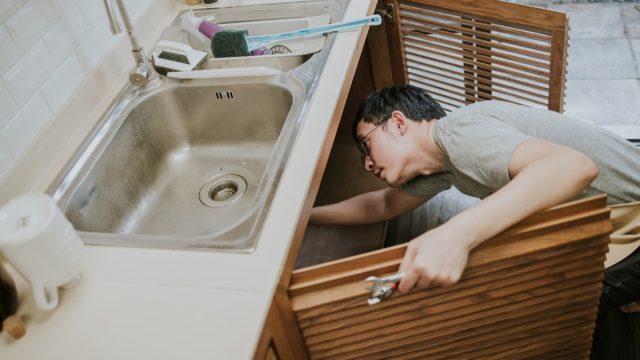
Maybe you prefer to put your pots in the cabinet next to your stove. Or you might think your utensils are just meant to be in the middle drawer. No matter the case, most of us have a designated space for the things in our kitchen. And when it comes to the miscellaneous items we don't have a specific spot for, we often turn to the area under our kitchen sink. But experts warn against treating this space as additional storage for just anything. Read on to find out which five items they say you should never store under your kitchen sink.
READ THIS NEXT: 5 Items You Should Never Store in Your Pantry, According to Experts.
1
Sponges
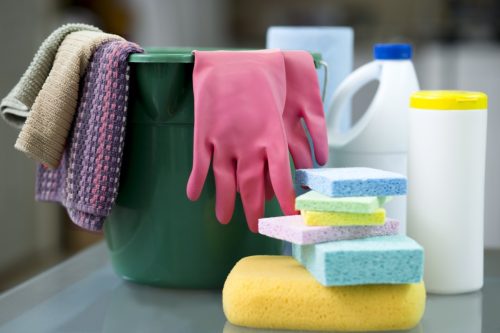
Many people are likely guilty of storing various cleaning products under their kitchen sink. However, Lauren Doss, a cleaning expert and the owner of Nashville Maids, says there is at least one item you shouldn't keep here: Sponges.
"They are often moist and can easily become breeding grounds for bacteria, mold, and other germs if stored under the kitchen sink," Doss explains. "It is best to store sponges in a dry and well-ventilated area."
2
Delicate dishes
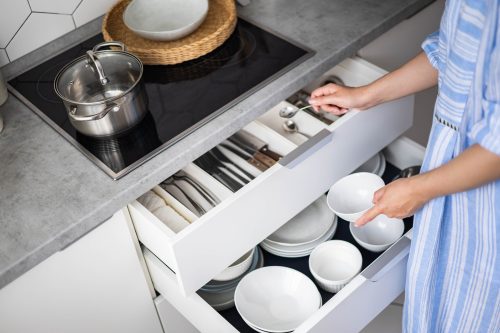
With the space under your kitchen sink being closer to the ground and often untouched by guests, you might see it as the perfect place to put your fine china. But Stefan Bucur, a cleaning expert and founder of Rhythm of the Home, tells Best Life that this could actually be more dangerous for your delicate dishes.
"That is because the plumbing pipes and the sink often rattle and sometimes pretty violently," he explains. "If your dishes and other fragile items are stored next to the kitchen sink pipes, they are very likely to break."
3
Flammable materials
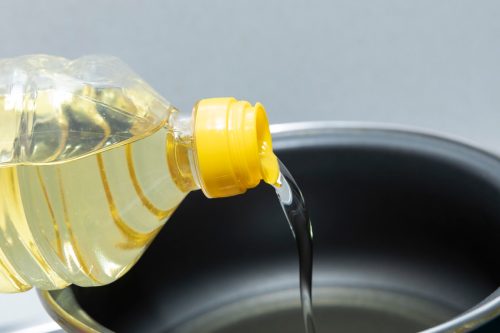
If you're thinking about using the space under your kitchen sink for any flammable or hazardous items, Kevin Wang, a home design expert and co-owner of Inyouths, warns that you should think again before doing so. This includes anything from cooking oil and flour to rubbing alcohol and lighter fluid.
"These materials should never be stored under the kitchen sink as they can cause a fire hazard due to the proximity of the water pipes," Wang explains. "It can lead to serious injuries and property damage if there is a leak or spill. If possible, these items should be stored in a separate room or area away from the kitchen."
For more home advice delivered straight to your inbox, sign up for our daily newsletter.
4
Small appliances
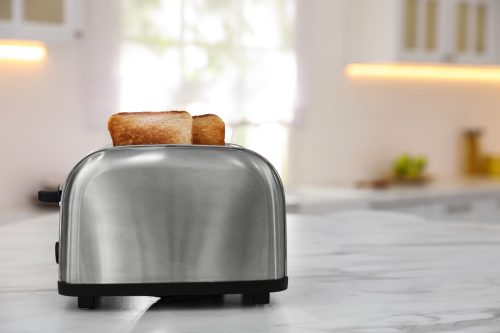
You may be tempted to store smaller appliances like your toaster or blender under your sink if you're strapped for space on your counter or in other cabinets. But Kerry Sherin, a home expert and consumer advocate at Ownerly, says this could easily end up being a bad idea.
"Typically, you'll want to keep any electronic appliances, or even battery-operated ones, away from areas at risk of water leaks or excessive moisture," Sherin explains. "This could quickly destroy the essential components of the devices."
5
Tools
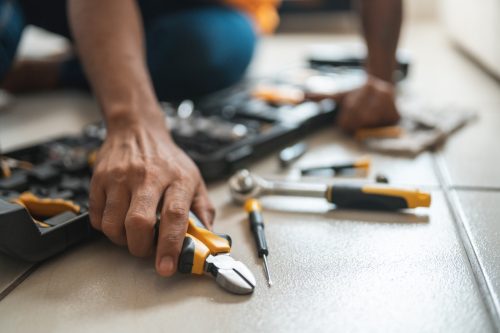
If the pipes under your kitchen sink are prone to leaks, you might try to leave your tools in this cabinet to ensure easy access whenever you need to make repairs. However, Sherin says she doesn't recommend you fall into this storage habit either.
"In order to keep metal tools from rusting or corroding, it is important to store them in a dry area away from moisture," she explains. "This is especially important to consider when storing things near the sink since the area usually tends to be damp, even without the presence of major leaks."





















